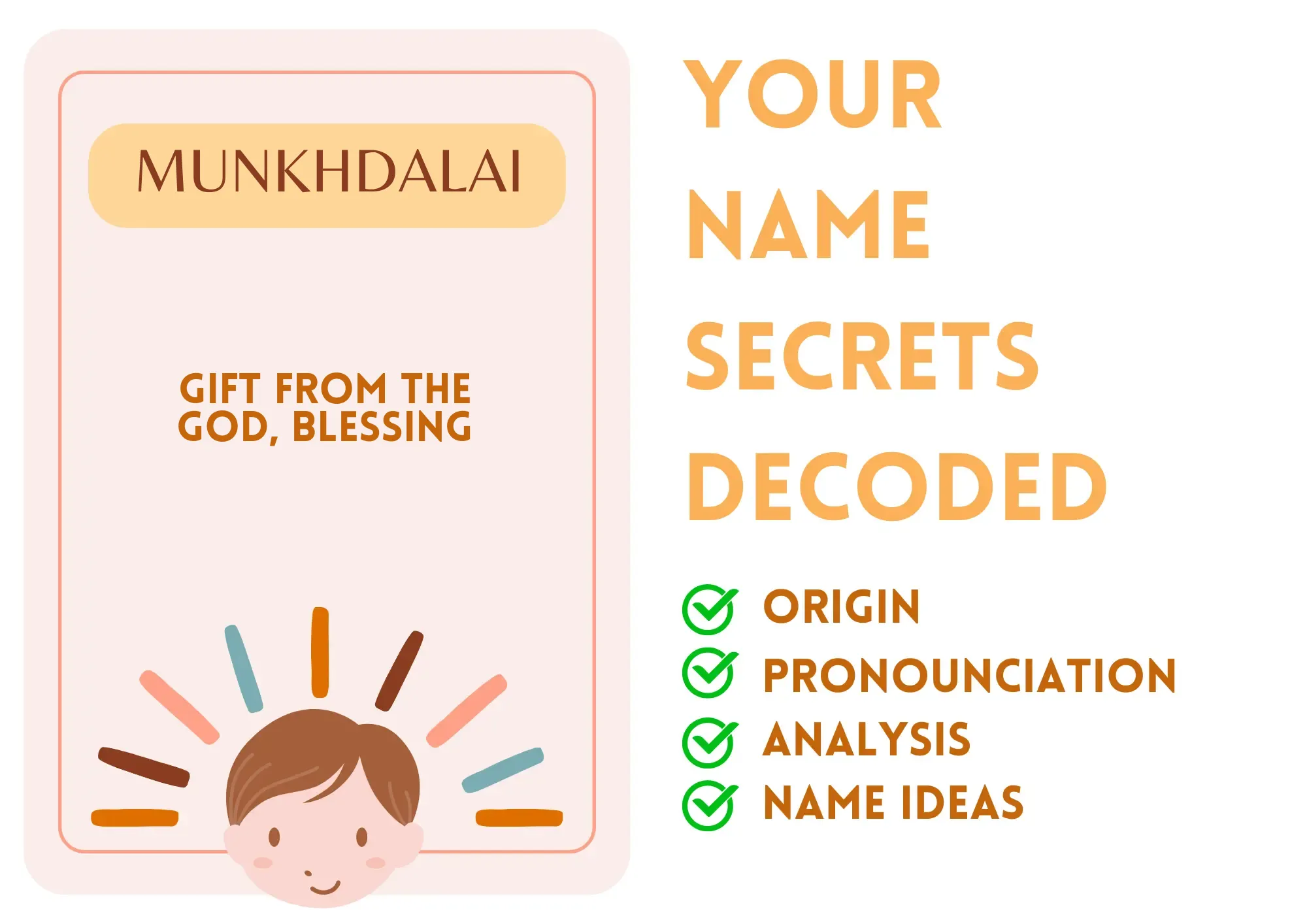
Munkhdalai
Munkhdalai is a unique name of Mongolian origin, translating closely to 'gift from the god' or 'blessing'. It is primarily used for boys, reflecting a strong cultural significance within Mongolian communities. The name is often associated with divine favor and positive outcomes in life, embodying a sense of hope and fortune for the bearer.
Commonly viewed positively, Munkhdalai evokes feelings of being special and cherished, a name parents might choose to promote a sense of destiny or enrichment in their child's life. Though slightly complex due to its length and syllable structure, it is generally easy to call once familiar.
This name does not have widespread recognition in popular culture, making it a distinctive choice that sets the bearer apart while celebrating cultural heritage.
Basic Information
Gender: Boy
Sounds Like: MOONK-huh-dah-lai
Pronunciation Explanation: The name is pronounced with emphasis on the first syllable 'MOONK', followed by a softer 'huh' and the last part 'dah-lai' flowing smoothly.
Summary and Meaning
Meaning: gift from the god, blessing
Origin: The name Munkhdalai has Mongolian roots, deeply embedded in the cultural fabric of Mongolia and its traditions.
Usage: Munkhdalai is traditionally a masculine name but can have a unisex appeal in certain contexts.
Name Number (Chaldean)
Name Number (Pythagorean)
Popularity (Global Rank)
Overall: 397385
Boys: 72681
Most Popular in
Religious and Cultural Significance
Religion: Shamanism
Background: In Mongolian culture, Munkhdalai reflects the shamanistic beliefs where names connected to blessings and divine gifts are cherished.
Cultural Significance: The name Munkhdalai represents hope, positivity, and the aspirations parents have for their sons, symbolizing a harmonious connection with spiritual beliefs.
Historical Significance: Munkhdalai signifies historical importance by embodying the reverence for spiritual blessings in Mongolian culture, reflecting the traditional values associated with names.
Popular Culture
Literature and Mythology: Though not commonly found in widespread literature, Munkhdalai can be viewed as representative of Mongolian folklore themes surrounding blessings.
Movies and Television: There are few known references in modern films or TV series, making it a rare character name but a meaningful one in local storytelling.
Feelings and Perceptions
Perception: Parents who choose this name often perceive it as richly meaningful and culturally significant, denoting hope and positivity.
Positive Feelings: Unique, blessed, cultural pride, hopeful, auspicious.
Negative Feelings: May seem unfamiliar or complex to outsiders.
Practical Considerations
Ease of Writing and Calling: Munkhdalai is somewhat complex in spelling due to its length; however, it is phonetic and can be learned quickly. The name consists of three syllables, which may take some practice to remember.
Common Typos and Misspellings: Munkhdali,Munkhdalaii,Munkhdala,Mungkhdalai
Common Nicknames: Munkhi,Dalai,Munk
Munkhdalai Popularity
Munkhdalai Usage and Popularity By Country
| Country | Rank (Overall) |
|---|---|
| Mongolia | 998 |
| Germany | 81441 |
| United States | 539518 |
Munkhdalai Usage and Popularity By City
| City | Rank (Overall) |
|---|
Compatibility Analysis
Famous Persons Named Munkhdalai
No results found for Munkhdalai.
Related Names
Similar Sounding Names:
Munkhbat,Munkhzaya,Munkhad,Munkherd